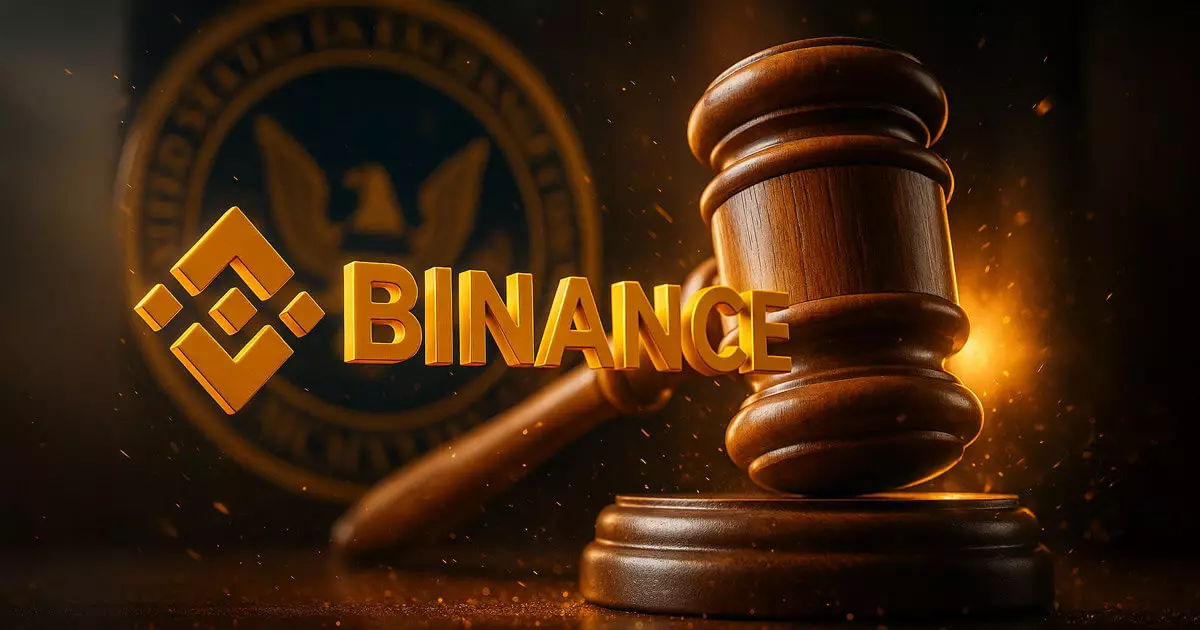The recent legal maneuvering from the U.S. Securities and Exchange Commission (SEC) regarding Binance has raised eyebrows and ignited discussions about the future of cryptocurrency regulation. On May 29, the SEC requested a federal judge to dismiss its civil complaint against Binance and its founder, Changpeng “CZ” Zhao. The context surrounding this dismissal is layered with complexity and reflects not only on Binance’s narrative but also on the broader environment for digital assets in the United States.
One can’t overlook the significance of this SEC decision as a possible shift in the way regulatory bodies engage with cryptocurrency exchanges. Judge Amy Berman Jackson’s ruling to momentarily pause the case in February provided the impression that both the SEC and Binance were entering a more conciliatory phase. This development indicates a potential recognition within the SEC that its hardline approach to crypto businesses might need re-evaluation in light of evolving market dynamics—an acknowledgment of the necessity to balance innovation with regulation.
The Rise of a New Regulatory Paradigm
Binance’s triumph, hailed as a “huge win for crypto,” is deeply intertwined with the establishment of a new SEC crypto task force. Commissioner Hester Peirce, an advocate for clearer regulations that encourage innovation rather than stifle it, might have played a crucial role in facilitating this new direction. By proclaiming that the SEC’s case against Binance has been dismissed, the agency appears to be indicating a change from a confrontational model of enforcement to a more collaborative stance.
This evolving framework is important not just for Binance, but for the entire industry. By reconsidering the approach to digital asset venues, the SEC is inching towards a regulatory environment that could ultimately foster a healthier ecosystem for cryptocurrencies. Instead of treating exchanges as adversaries, this potential shift invites them to be partners in innovation—an objectively positive outcome for all stakeholders.
Transparency and Compliance—A Path Forward
Despite the good news for Binance, it’s essential to acknowledge that the legal dust hasn’t settled completely. Binance.US remains bound by its consent decree that mandates quarterly compliance reports and third-party audits of custodial wallets. This ongoing scrutiny ensures that while the atmosphere is ripe for innovation, it is also anchored by accountability. The balance of pushing for progress in the crypto industry without compromising security standards is a tightrope that the SEC must navigate carefully.
Interestingly, the notion that compliance can coexist with innovation embodies a fundamental principle of free-market capitalism—where regulation works not to restrict but to enhance competition and trust among consumers. The SEC’s decision to pause aggressive enforcement actions and open up channels for dialogue represents an important step toward that nuanced balance.
The Broader Impact on Investor Confidence
Another analytical lens on this dismissal involves its potential effects on investor confidence. With the SEC’s previous claims that Binance operated as an unregistered securities exchange, concerns were rife among both novice and seasoned investors. The SEC’s filing had accused Binance of inflating trading volumes and mismanaging customer assets—accusations serious enough to send shockwaves through the market.
By stepping back from these claims, the SEC has signaled to the market that it recognizes the need for clear rules rather than punitive actions aimed at industry leaders. This shift could revitalize not just Binance but the entire crypto ecosystem, encouraging individuals and institutions alike to dive back into investment and innovation with a renewed sense of trust and security.
A Step Towards Global Standards
Furthermore, this dismissal might have implications that stretch beyond the U.S. market. As one of the largest cryptocurrency exchanges globally, Binance’s operational capabilities and compliance measures set a tone for international standards in crypto regulation. If this case led to more harmonized regulations beneficial to digital asset platforms, it could encourage a global approach to crypto governance—something that is sorely needed to tackle the cross-border nature of digital finance.
The SEC’s recent approach could potentially inspire other countries grappling with their own regulatory frameworks, urging them to reassess their stances on cryptocurrency. It may be too optimistic to forecast a complete overhaul of global regulations, but the groundwork for cooperation amongst nations could very well be laying ahead.
By embracing innovation while fostering a regulatory framework grounded in transparency, fairness, and accountability, the SEC could make lasting contributions to the evolution of the cryptocurrency landscape—a development that garners more than a passing mention in discussions about the future of finance.















Leave a Reply